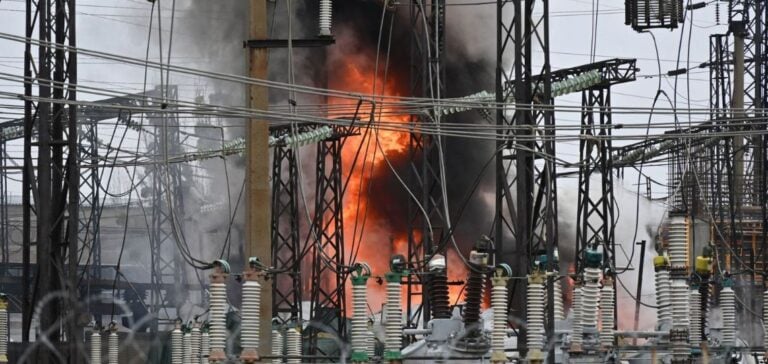Sweden unveils a new aid plan to secure Ukraine’s energy supply, essential to keep Ukrainian society, economy and businesses running. At a press conference, Johan Forssell, Sweden’s Minister for Foreign Trade and International Aid, stressed the importance of this support as Russia stepped up its attacks on Ukraine’s energy system.
“Access to energy is essential for Ukraine’s society, economy and businesses to continue to function.” “Russia is increasingly targeting its attacks on Ukraine’s energy system with the aim of disabling important infrastructure. To strengthen Ukraine’s resilience, we are today increasing our support for the energy sector.”
The 650 million kronor (57 million euro) plan is to supply generators, transformers, photovoltaic cells and essential spare parts such as switches, cables and pumps. Russian forces are stepping up daily attacks on remote frontline areas in Ukraine, using drones and guided missiles to damage energy infrastructure and cause power cuts. In response, Sweden is stepping up its support to ensure the continuity of electricity production in Ukraine. The aim is to keep the plants operational despite the damage caused by the Russian attacks.
Strategic investments and resilience
Minister Forssell points out that the funds will be invested not only in power generation equipment, but also in spare parts to repair and maintain existing infrastructure. This effort is part of a wider strategy of long-term support, with a 75 billion kroner (6.5 billion euros) civilian and military aid plan announced the previous week, covering the period from 2024 to 2026. Ukraine is the main beneficiary of Swedish aid, and this support could continue to weigh on public finances beyond 2026.
Ongoing, evolving support
The Swedish energy assistance plan is designed to adapt to Ukraine’s changing needs. Depending on needs, deliveries of replacement purchases and other types of support could be adjusted to ensure continued resilience of the Ukrainian energy sector. This flexibility is crucial to meeting the challenges posed by Russia’s relentless and unpredictable attacks.
Impact and outlook
Swedish support for Ukraine has significant implications for the energy stability of the war-torn country. By supplying essential equipment and supporting infrastructure maintenance, Sweden is helping Ukraine to maintain a degree of economic and social stability despite the Russian attacks. What’s more, this international solidarity effort could inspire other nations to step up their support for Ukraine in critical areas.
Sweden demonstrates its strong commitment to Ukraine by stepping up its energy support in the face of Russian attacks. This combined effort of technical and financial support is essential to maintain the resilience of the Ukrainian energy sector and, by extension, the country’s stability. By investing in sustainable solutions and adapting its support to Ukraine’s evolving needs, Sweden is playing a crucial role in the international response to Russian aggression.






















